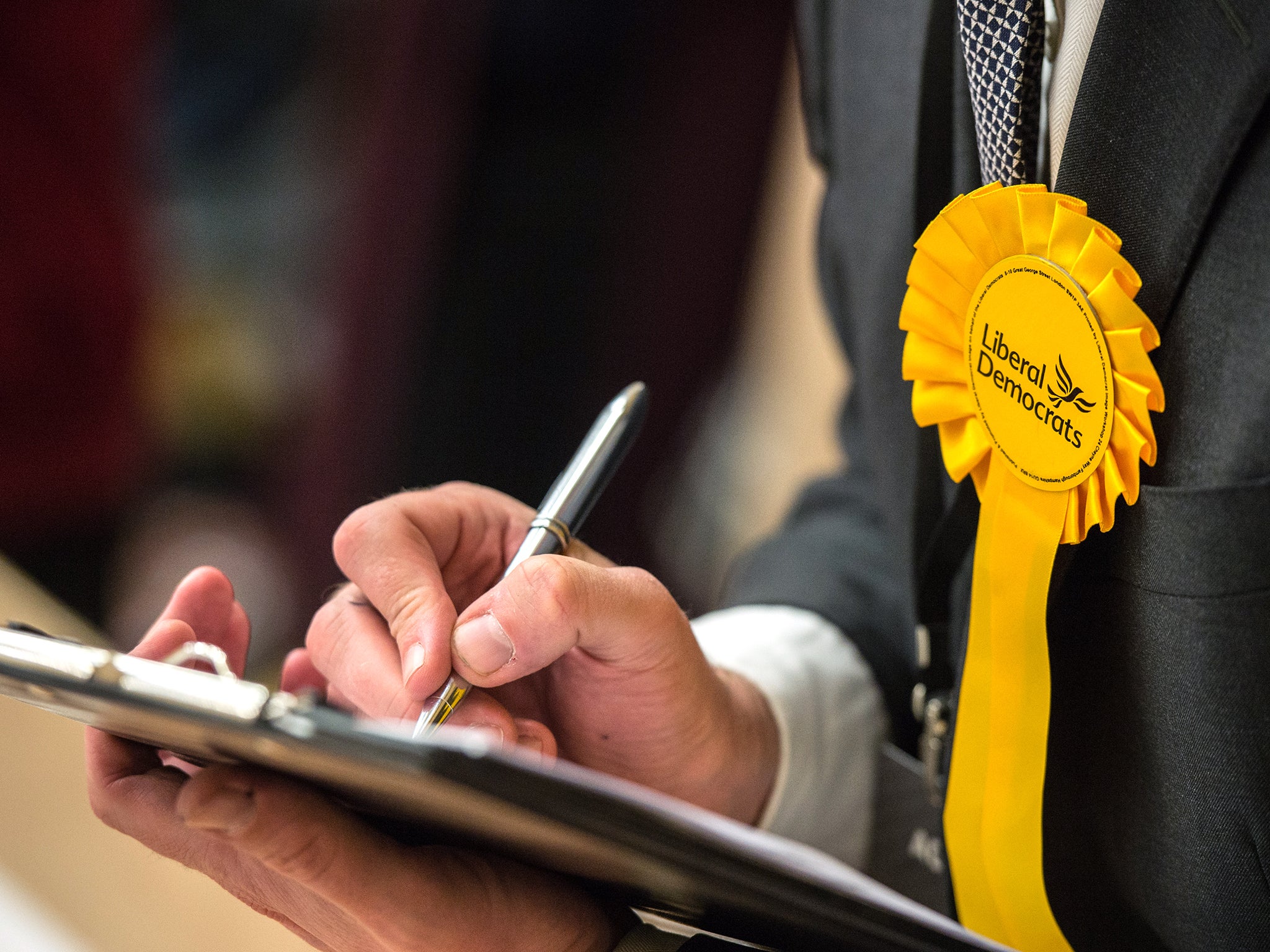Tactical voting is worth it where Brexit is concerned
Send your letters in to letters@independent.co.uk

I read with interest your news article proclaiming that "a third of people are considering tactical voting to block the Conservatives' hard Brexit".
This is why I love the Greens but will be voting Lib Dem on 8 June. The former are prepared to unilaterally stand aside in accordance with their principles. I would (and did in 2015) vote for the Greens, but the Lib Dems held my current constituency from 1997 to 2005 and have a chance of taking it back.
Although Labour got a greater percentage of the vote in 2015, I cannot bring myself to vote for them after Sir Keir Starmer and Emily Thornberry indicated that they will carry on with Brexit. I will have to hold my nose to vote for the Lib Dems, following Tim Farron's praise for Trump's air strike in Syria and his unclear comments about gay people. However, I can't stomach the thought of taking support away from a progressive candidate who might have a real chance of unseating John Penrose.
Kat Deuchars
Weston-super-Mare
I believe that the Conservative Party is heading for an absolute majority in the UK Commons following this year’s general election, and that the UK is heading for Conservative Party hegemony in the UK Commons for the indefinite future.
I believe that Jeremy Corbyn will face irresistible pressure to resign following that election, and that the progressive agenda within the Labour Party will die with his demise.
Thus, I believe that the election offers a unique window of opportunity for some form of progressive alliance arrangement between progressive parties, both to maximise the presence of the progressive agenda in the UK and for the indefinite future.
Tim Knight
Bristol
It's sad the Lib Dems – for whom I and many other Independent readers will still vote – think they'll attract more voters with tax-raising pledges. They won't, even if it's true the NHS is as sick as it's ever been.
The only policy that matters is what makes them stand out from the other parties: insisting on staying in the single market.
Stefan Wickham
Oxted
If the middle class votes Tory, it'll be turkeys voting for Christmas
Labour is going to increase taxes on incomes over £80,000 and doubtless the Tories will use this, as they always do, to scare the middle class into voting for them. This is deception on a grand scale.
In fact, more than 95 per cent of the population earns less than £80,000 (the Government’s own statistics prove that), so most people will not suffer at all. They may very well benefit, particularly if the cost of their national insurance does not go up, as is likely with the Conservatives.
If a middle-class person supports the Tories on this basis, it’s definitely a case of turkeys voting for Christmas.
John Day
Lyon, France
A very French attitude to voting
The French held their election on a Sunday, which seems strange to us Brits. We generally hold ours on a Thursday. I wonder if this says anything about our respective attitudes to voting. Could the British be bothered to find a voting booth on a Sunday, or do we need to feel more optimistic generally? Thursday is near to the weekend but not Friday, when I suspect the politicians would be even more concerned about us not voting.
France must consider its citizens to be very conscientious in these matters to allow elections to interfere with people’s weekends.
Lynn Brymer
Ashford, Kent
Sturgeon knows the tide is turning on the SNP
So Nicola Sturgeon sees the local election results are “an emphatic victory” for the SNP. Really?
On one level, indeed they are. The SNP has more or less repeated its 2012 local election result in terms of seat numbers, with more councillors than any other party in Scotland. Plus most Tory gains came from Labour, not the nationalists.
While local control is important to the SNP, Sturgeon has her sights firmly on the bigger Westminster prize – and it's here she faces losses rather than simply maintaining a steady position.
The 2012 local election was way before the massive surge in SNP support in late 2014 and 2015. Merely matching her party's 2012 performance starkly demonstrates how much ground the SNP has lost since the 2015 Westminster election.
The SNP secured significantly less than 40 per cent of the local election “first preference” vote – that's more than 10 per cent less than achieved in 2015. Plus last week, importantly, the Tories secured a high ratio of “first preference” votes in their key target Westminster seats.
Sturgeon is set to end up with more MPs than any other party north of the border in June. That's beyond doubt – and of course that'll be hailed as “an emphatic victory” too.
But the much more crucial question is: how many additional seats will she lose compared to 2015? And, importantly, what impact would say another sub-40 per cent SNP vote tally have on the validity of Sturgeon's ongoing Indyref2 demands?
As a barometer for the June vote, the local election result, far from being “an emphatic victory”, is an unmitigated disaster for the SNP. And whatever Sturgeon says for the benefit of TV audiences, she knows it.
Martin Redfern
Edinburgh
Ukip is gone because the Tories took their place
Now that we have the Conservukips, what's the use of Nigel Farage?
Patrick Cosgrove
Shropshire

Join our commenting forum
Join thought-provoking conversations, follow other Independent readers and see their replies